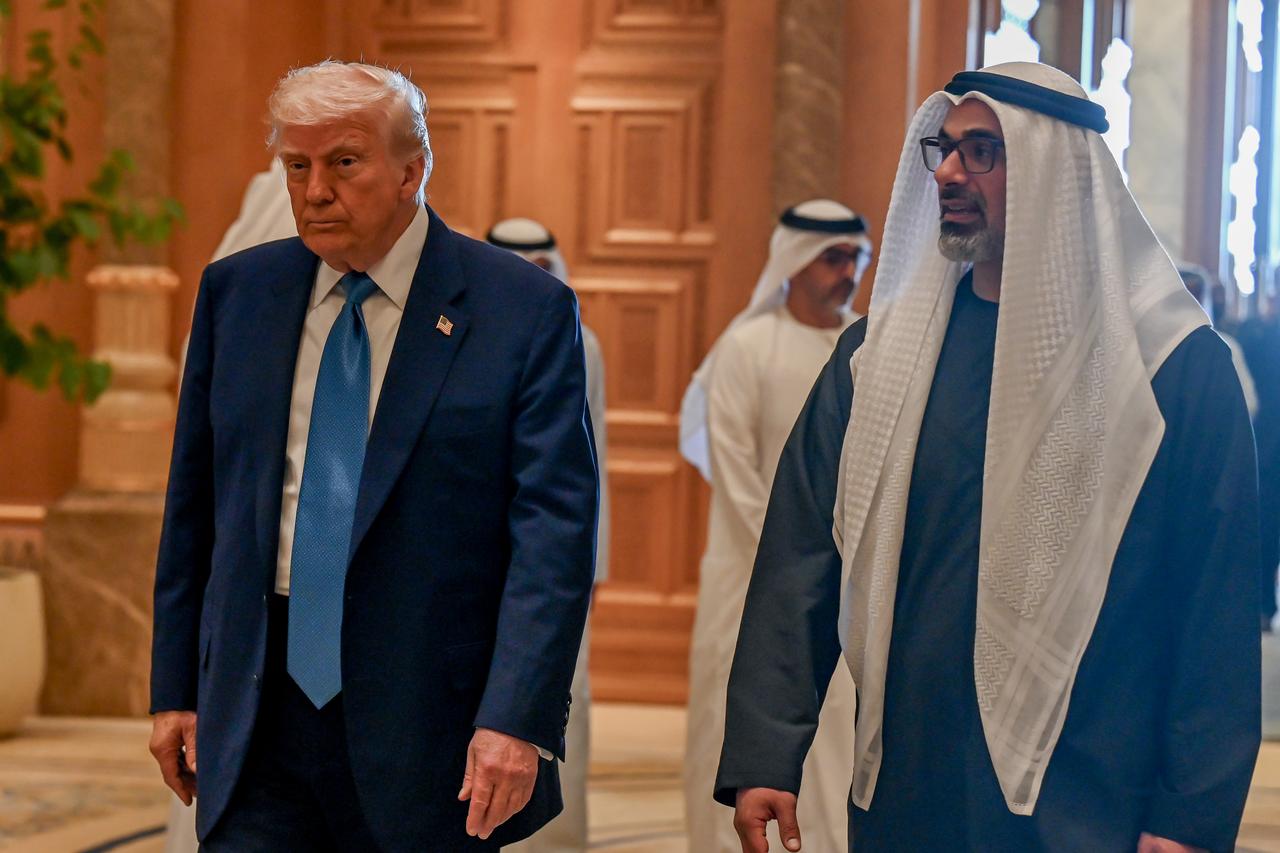
U.S. President Donald Trump concluded a four-day tour of the Gulf region on Friday that transformed traditional diplomatic engagements into a massive business development mission, yielding more than $2 trillion in investment agreements across Saudi Arabia, Qatar, and the United Arab Emirates.
"It's been a tremendous time, and now it's time to go back home," Trump said Friday at the opening ceremony of the US-UAE Business Dialogue, capping off a trip heavily focused on economic partnerships, defense sales, and technological cooperation.
The presidential tour, which marked Trump's first visits to these nations during his second term, resulted in unprecedented financial commitments and strategic partnerships across multiple sectors, with particular emphasis on defense and artificial intelligence.
Trump's trip began Tuesday in Saudi Arabia, where he met with Crown Prince Mohammed bin Salman. The two leaders signed a "Strategic Economic Partnership Document" along with 12 bilateral agreements spanning multiple industries.
The Saudi government pledged $600 billion in U.S. investments, though this fell short of the $1 trillion figure Trump had previously mentioned following discussions with the Crown Prince in January.
The White House announced what it called "the largest defense sales agreement in history" — a $142 billion arms deal to supply Saudi Arabia with advanced combat equipment.
In a significant technology partnership, U.S. chip giant Nvidia formed an alliance with Saudi state-run AI company Humain. Nvidia CEO Jensen Huang, who accompanied Trump on the visit, announced that Humain will invest in establishing AI factories in Saudi Arabia with capacity of up to 500 megawatts over the next five years.
On Wednesday, Trump became only the second U.S. president to visit Qatar since George W. Bush in 2003. According to White House statements, the trip yielded economic deals exceeding $243.5 billion, including a $96 billion sale of Boeing aircraft and General Electric aviation engines to Qatar Airways.
Speaking from Al Udeid Air Base, the largest U.S. military installation in the region, Trump highlighted a $42 billion arms sale that includes Terminal High Altitude Area Defense (THAAD) missile systems, Pegasus refueling aircraft, and MQ-9B Sky Guardian drones.
"Qatar will also be investing $10 billion to support this massive base in the coming years," Trump added.
Additional deals included a $1 billion investment from Al Rabban Capital in quantum technologies and workforce development in the United States, a $1 billion Raytheon contract for counter-drone systems, and a $2 billion agreement with General Atomics for surveillance drones.
The White House also announced a broader strategic economic agreement valued at least $1.2 trillion.
Trump's final stop was the United Arab Emirates, marking the first visit by a U.S. president to the country in 17 years. UAE President Sheikh Mohamed bin Zayed Al Nahyan received Trump at Qasr Al Watan in Abu Dhabi on Thursday.
According to White House statements, new deals signed during the UAE visit totaled up to $200 billion. Sheikh Mohamed announced plans for the UAE to invest $1.4 trillion in the U.S. over the next decade.
The two leaders unveiled a new 5GW UAE-US AI Campus in Abu Dhabi, described by the Emirates News Agency WAM as "the largest outside the US" that "will be home to US hyperscalers and large enterprises that can leverage the capacity for regional compute resources with the ability to serve the Global South."
The visit concluded with the signing of multiple agreements covering defense, security, artificial intelligence, and trade sectors.
Through this Gulf tour, the administration has shifted diplomatic focus toward investment-focused engagement, reinforcing economic ties with key Middle Eastern allies while securing significant financial commitments for U.S. businesses and defense contractors.